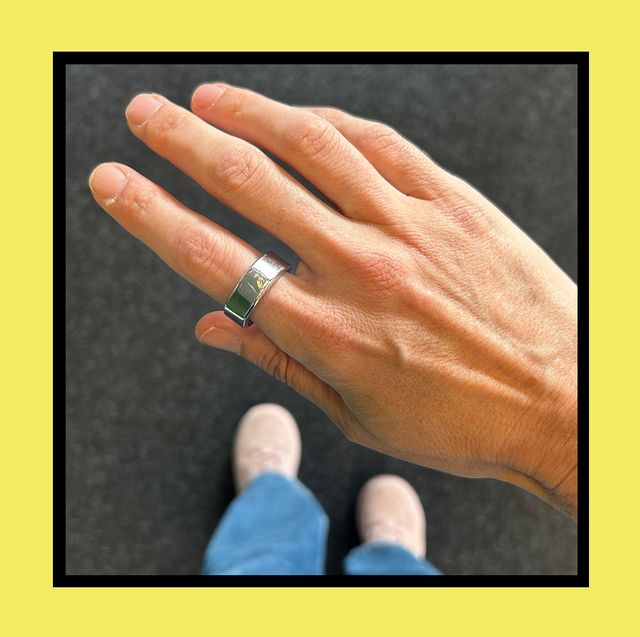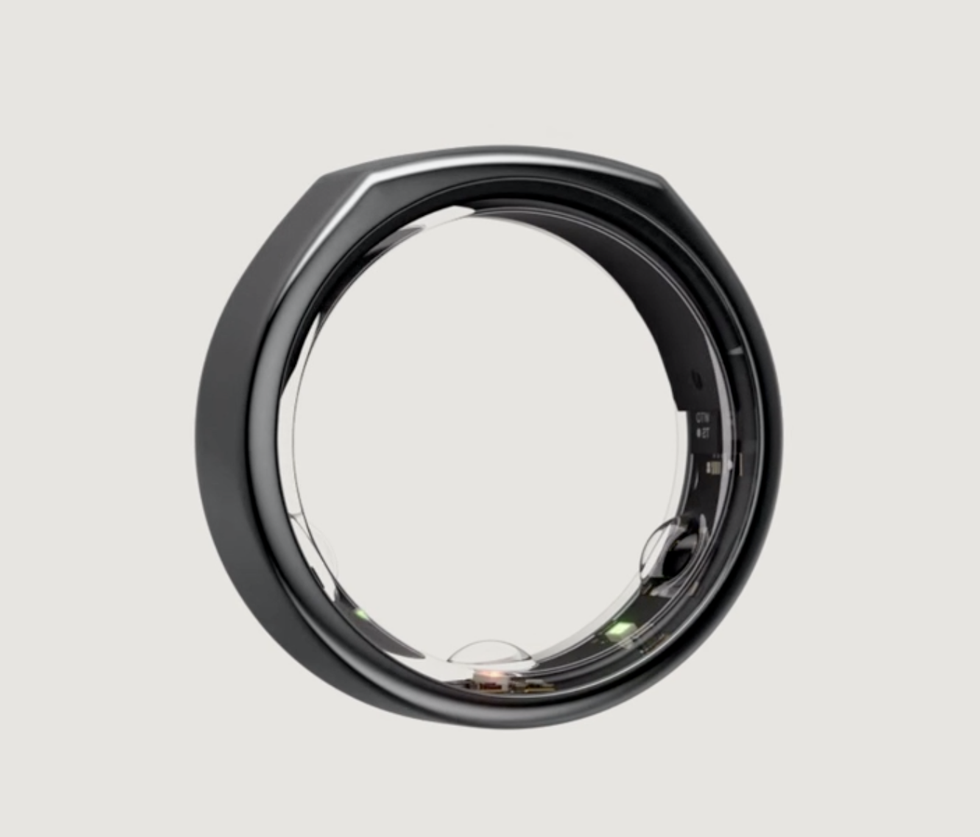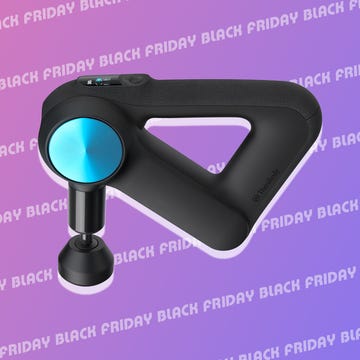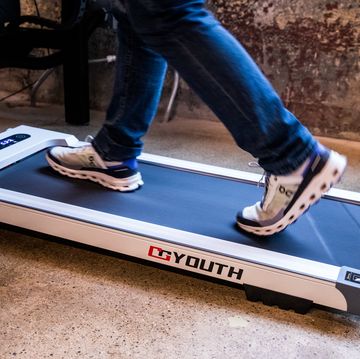The Oura ring is a fitness tracker with a difference – that difference being this smart ring is a tracker you genuinely forget you're wearing. I've tried a huge variety of tracking devices over the years, and almost always give up on them fairly quickly. The two things I really want them to accurately track – sleep and activity – are the areas in which they most often let me down. While running watches like a Garmin or the Apple Ultra do fitness tracking brilliantly, I'd never found something that was both accurate at measuring sleep and comfortable to wear all day and night. Until, that is, the Oura ring.
What is an Oura Ring?
Superb sleep tracking metrics smart rings that tracks your sleep, HRV (heart rate variability) and activity levels, and offers advice and feedback to help you improve the areas that, well, need improving. As it's a ring, you naturally don't have a screen to look at (or to distract you) and all the information the ring gathers is found on the easy to use accompanying app. No screen also means a long battery life – the ring only needs to be recharged around every five days or so, and it's pretty quick to recharge too.
When you order an Oura, you are sent a sizing kit of dummy rings so that you can chose the right size for you. Oura recommend you wear it on your index finger for the most accurate tracking, though that is only a recommendation. I can only say that I've been wearing it on my index finger for over a year and despite not being keen on rings generally, I genuinely completely forget it is there. I've never had a single issue with comfort.
What does an Oura Ring do?
The main metrics the Oura tracks are your heart rate, HRV, temperature, sleep and activity. Despite being a tiny little device, it's got three sensors inside it, which sit against the underside of your finger. These are worth going into a little more detail on to help explain what the ring does.
Firstly, there's a PPG (an infrared photoplethysmography sensor) which measures your heart rate and respiration. This is a light, so if you are in a very dark room or look at your hand during the night you can see it, though it is never intrusive. One of the reasons Oura recommend the index finger for wearing the device is that you generally get a stronger heart rate signal here, as it's nearer the arteries. The device can also use the infrared LEDs to measure your blood oxygen saturation during sleep.
The second sensor is an NTC (negative temperature coefficient) which measures body temperature at night. This, of course, can change if you are ill, but it also naturally fluctuates during the menstrual cycle. This is what the app uses to track, and predict, your cycle, with impressive accuracy.
Finally, there is an 3D accelerometer which measures movement like running, walking or gym work. It's also the accelerometer which measures your nighttime movement, whether that is sleepless tossing and turning or the stillness of deep slumber.
Sleep tracking
The usefulness of sleep trackers is, in my opinion, debatable. If you've been kept awake by a car alarm or you're disturbed frequently by a small child, having this confirmed by a device isn't exactly necessary or helpful. After all, there's not a lot you can do about it, no matter how often you wave the app in the face of the small child and say 'Look! Mummy needs to get more quality sleep, her sleep score is terrible!'.
But then again, if the device starts to learn your patterns, and over time you realise you'd do a lot better – and get more quality sleep – simply by shifting your bedtime a little earlier, then it might be worth every penny. And that's where Oura really shines. Because there are no annoying buzzing or vibrating notifications, you can do your best to sleep like a log, and only in the morning check the app to see if your impression of your sleep matches the stats it gives. This comes in the form of a sleep score.
Without confirming in a lab with scientists watching and logging your every move, it's hard to say definitively if the Oura sleep tracking is accurate or not, but it certainly feels right. Perhaps because the device is so unobtrusive, it seems to very accurately reflect when I feel like I'm tossing and turning at night and when I feel I sleep solidly. It also very quickly becomes clear how too much (or indeed not a lot of) alcohol or stress affects your sleep. When giving you a sleep score, the Oura gently suggests things you might be able to do about it, like getting your head down earlier or using one of the meditations on the app to help you wind down.
Your 'readiness score'
Alongside a sleep score, the other main metric the Oura Ring gives you is your readiness score. This is a measure of how well your body has recovered from whatever you have put it through, whether that's a nice easy day with a gentle run or an all-out training session. It calculates this by combining several of the rings metrics, including sleep, activity and your HRV. If you get a high score, you have recovered well and all bets are off. If it's low, the Oura gently suggests you might want to rest a little. If you are really struggling – either with stress or perhaps illness – then you can turn on 'rest mode' and the Oura turns off any movement goals.
Of course, as with all measurements, you can take it with a pinch of salt – but equally, the advice Oura gives isn't particularly prescriptive, which I like. When it comes to the readiness score, for runners, 'take it easy today' could be a good hint to move that hard session to another day, but it doesn't mean you can't go out for an easy jog.
Heart rate tracking
The Oura tracks your resting heart rate and your heart rate through the day and night, albeit intermittently (runners who want accurate heart rate tracking for a run should definitely still go for a running watch or The Oura tracks your for this metric). It notices when your heart rate and your HRV is higher than normal, whether that might be because you are under the weather or, for women, at certain points in your cycle. On the app, you can add tags to each day so that you can look back and see what effect other factors have, whether it's plane travel, a horribly bright hotel room or a rather-too-late coffee.
The app also gives you a daytime stress score. Again, if you've got a mega-stressful day at work, you probably don't need to be told your stress levels are elevated, but for runners this is a really useful way, alongside the readiness and sleep score, of seeing how well you are recovering from a run, particularly in the short term.
Activity tracking
The Oura is certainly not the device you'd want if you want accurate mile splits and live heart rate data. For that, stick to your running watch. But it does track steps and calories burned (which is a goal you can edit) and can auto-detect certain activities. You can also import your Apple health and Strava data, so that it automatically pulls in your activities. If you don't do this, it does ask you if you were running/ walking/ working out at certain points of the day. This helps your activity score to be more accurate.
Technically, you can actually open the app and ask it to 'live' record your heart rate during a workout, so if you don't have any other tracking device that might be worth doing, but given the lack of screen, you obviously won't get that data until you stop.
RW Verdict
The Oura Ring has become my favourite wear-all-the-time device. While running watches might give me more detailed feedback for runs, the Oura is hands down the best lifestyle tracker I've ever tried. The period prediction is almost unnervingly accurate, the sleep tracking is helpful without being intrusive, and the advice on the app is useful and intuitive without ever veering into prescriptiveness. It's also extremely robust – it's totally waterproof, so you don't need to take it off in the bath, shower or the swimming pool, nor when you wash your hands.
The only time I've ever become aware of it in a negative way is when lifting heavier weights, when the ring can sit exactly where you need to hold the weight. However, this is a very minor issue and you can easily just take it off for a few minutes if that bothers you. The only real drawback of the Oura, aside from its limitations as an actual running tracking device, is that it's expensive and you must pay the ongoing subscription to have access to the full data.













